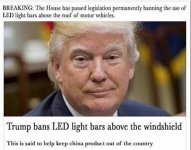For reasons that I cannot explain, you conflate currency manipulation with oil prices.
These are two completely different economic subjects, akin to comparing the price of avocados with the price of a BMW.
Specifically, currency manipulation involves a nation with a trade surplus buying the currency of its trading partners, which are running a trade deficit. Doing so artificially increases the value of the trade-deficit nation's currency and decreases the value of the currency of the trade-surplus nation.
That then keeps the relative cost of products lower in the trade-deficit nations and higher in the trade-surplus nations, since the tactic of buying up currency and artificially pumping up the currency value of the surplus-nation means that it takes just $5 to buy "x" product (an import), when in reality it should take $6.25. In turn, it takes 6 yuan to buy imports, when in reality it should take only 5 yuan.
https://ourfuture.org/20140622/what-is-currency-manipulation
Currency manipulation is simply a tool to fight market forces that otherwise would drive the value of the surplus-nation's currency up to the point that trade begins to level off - and is generally available where a nation has a centralized economy (check), a trade surplus (check) and leaders willing to screw with market forces to artificially inflate the value of its currency (check).
In other words, China.
China's softening economy over the past 12 months has definitely reduced its currency manipulation, as the nation is trying to revive its economy and pumping up its currency slows purchase of domestic-made products. That is well and good during economic expansion, and more troublesome during a recession.
Nonetheless, the evidence is palpable and basically beyond dispute - China is a notorious currency manipulation, and has been for a generation.

